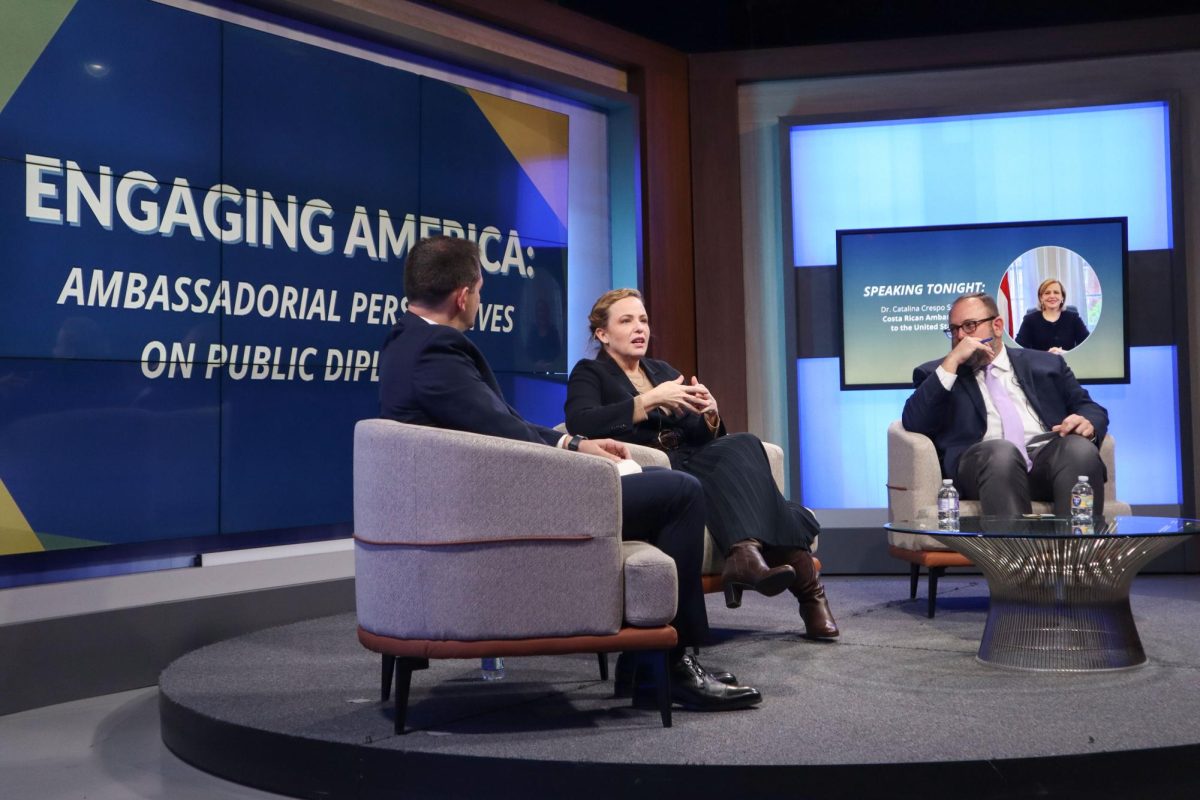Costa Rica’s ambassador to the United States discussed how serving the interests of both countries pushed her to develop tools for facilitating bilateral policies in the School of Media & Public Affairs’ television studio on Wednesday.
Ambassador Catalina Crespo Sancho discussed how she developed policy solutions for both Costa Rica and the United States while navigating working in international affairs as a woman. The event, moderated by Qёndrim Gashi, the former ambassador of Kosovo to France, and Joe Wierichs, the Department of State’s public diplomacy fellow at the Institute for Public Diplomacy and Global Communication, was the second in an international ambassador series hosted by the IPDGC.
She said ambassadors are constantly adjusting their strategies for communication and policy development, so they’re prepared for shifts in foreign policy and international politics. She said the most important part of her job is to facilitate connections between both countries regardless of what political figures are in charge.
“Every time before I meet with a congressman or woman or senator, I’m like, ‘okay, what’s going on in this state?’ If it’s the House, what’s going on in their specific area?” Sancho said. “How does that relate to Costa Rica or not? Usually there’s something one way or another.”
Sancho said in diplomacy there is a difference between understanding a language and understanding a culture. She said her time spent living in the United States prior to serving as an ambassador not only helped her foster a stronger diplomatic connection between the two countries but also gave her a better perspective on both the political landscape and day-to-day life as an American.
Sancho said it is crucial that ambassadors maintain a positive mindset and tough skin while serving as a public figure. She said one observation she’s made about gender roles is that the spouses of female ambassadors are often criticized if they don’t work, but the spouses of male ambassadors are not criticized for working less.
Sancho said while facing public scrutiny as a woman in international politics, she turned to humor as a coping mechanism.
“When you are a woman in politics, or a person in politics regardless of gender, you go through a lot, people are after a lot of things you do,” Sancho said. “So you have two options. You either get grumpy, and you don’t trust anyone, and then nobody wants you around, or you laugh about it. Sometimes you don’t laugh about it, but you have a good humor into things.”





